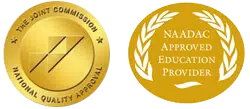As you’ve worked your way through the 12-Step recovery program, you’ve probably noticed just how intertwined each step is with one another. As you embark on Step 7, pushing you over the hallway mark, the action that we discussed in step 6 continues. Each step is a milestone accomplishment for you to celebrate. Each step involves peeling back another layer of who you are to uncover, not only your faults, but your true potential as you embark on a life-long recovery journey. Step 7 involves, “humbly asking Him to remove our shortcomings.” This is another actionable step that involves directly asking for help in your path to personal growth.
What does Step 7 accomplish?
Step 7 is about actively removing the shortcomings that we’ve come to accept in previous steps. During this step we move from acknowledgement, and the beginning stages of action that we started in step six, to fully letting go of all ties we currently still hold on to with our past mistakes, negative feelings and actions and unhealthy emotions that emerged from those inadequacies. Step 7 is the active process of turning over a new leaf. This step requires us to tap into healthy emotions and feelings, such as humility, active effort and thorough understanding. Step 7 also requires empathy from those whom you choose to help you clear your past.
How do we handle the godly reference to “Him” if we are not religious?
You can successfully complete this step without any religious association. Although the 12-step recovery program was originally built on the pillars of religion, completion of the 12-steps does not require any godly affiliation or confirmation at any point. Instead, use these words, within the step, as guidance of your own journey’s purpose. Ask those in your circle to help you remove the shortcomings in your path. Acknowledgement and acceptance of your shortcomings, that were focused on in Steps Four and Five, are now being cleansed from you during Step 7. In order for you to fully rid yourself of your shortcomings and most past them on your path to recovery, you need to enlist the help of those who support your journey, even if that does not mean a higher power to you. This could simply be a sponsor, a close friend or family member or a support group that you belong to.
What are some questions to reflect upon as I embark on Step 7?
Self-reflection is key through each of the 12 Steps to Recovery. Taking time out of your day to reflect upon deep thought through your recovery process allows you to gain a deeper perspective, become more connected with yourself and allow you to be fully immersed in all facets of your personal story.
As you navigate through Step 7 consider asking yourself the following:
- How have steps one through six set me up to accomplish Step 7?
- What will be the biggest obstacle in Step 7 for me?
- Who do I trust to help me accomplish Step 7?
- What accomplishments have I made over my shortcomings thus far?
- How much have I changed from step one until now?
If you had to describe Step 7 in one word what would it be?
Humbleness. In order to fully embrace Step 7, and your recovery journey, you must be able to reflect on all of your past missteps with humility. Understanding that your shortcomings have led you through a fight with substance use and caused you to make negative choices on your life path, allows you to clean them from your current slate and begin anew. Understanding that discussing, dissecting and resolving issues of the past may feel uncomfortable and heavy is part of the process to starting a new season of your life. Stay humble in your acknowledgement and allow your shortcomings of the past, shape your future with positivity on a journey to lifelong sobriety.
Do you or someone you know need help? Baystate Recovery Center can help. Call our admissions line (855) 88-SOBER.
Baystate Recovery Center, a clinically Infused 12-Step Treatment Center for Drug and Alcohol Addiction, was founded by two partners in addiction treatment services, John Checchi and Michael Wilson.



